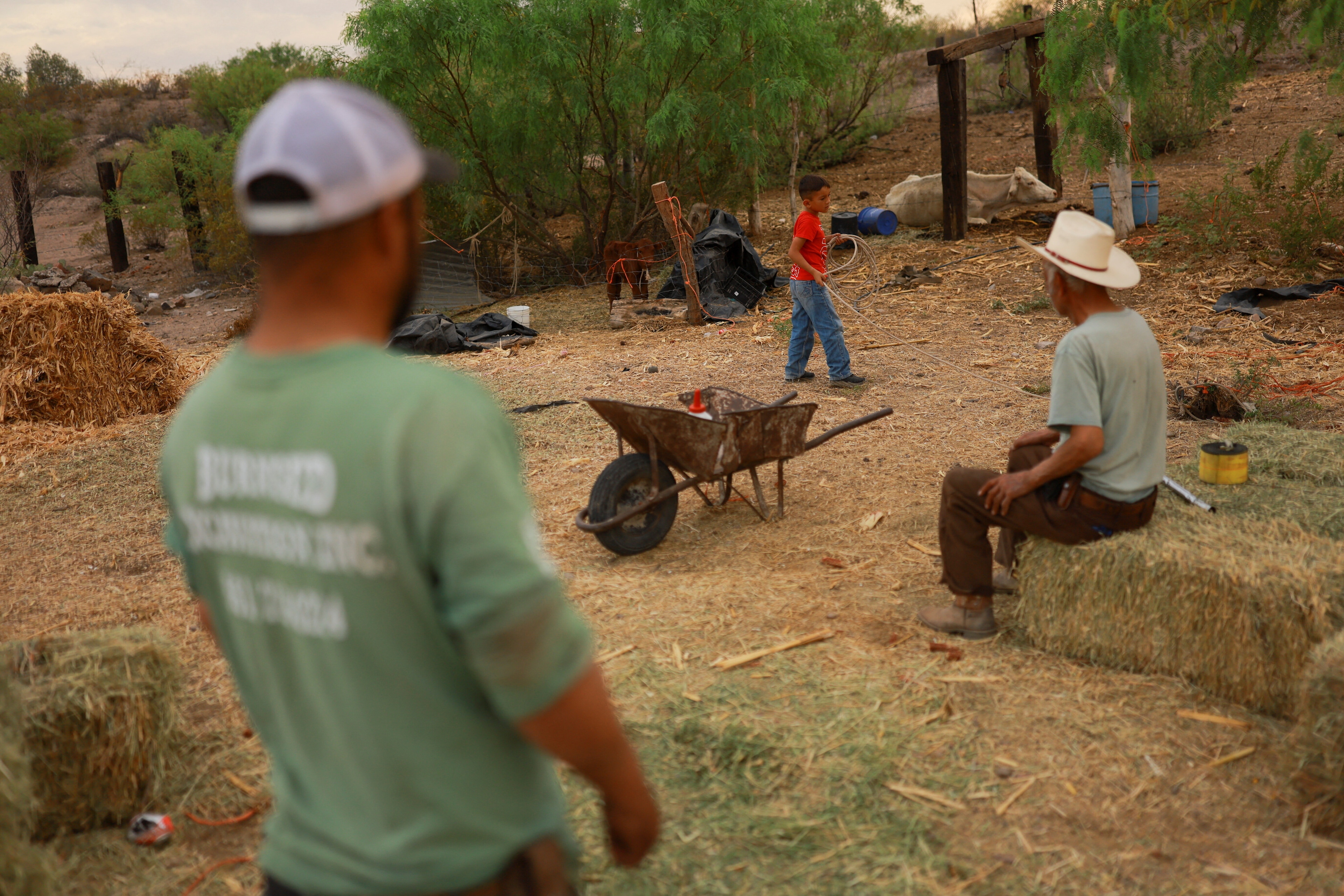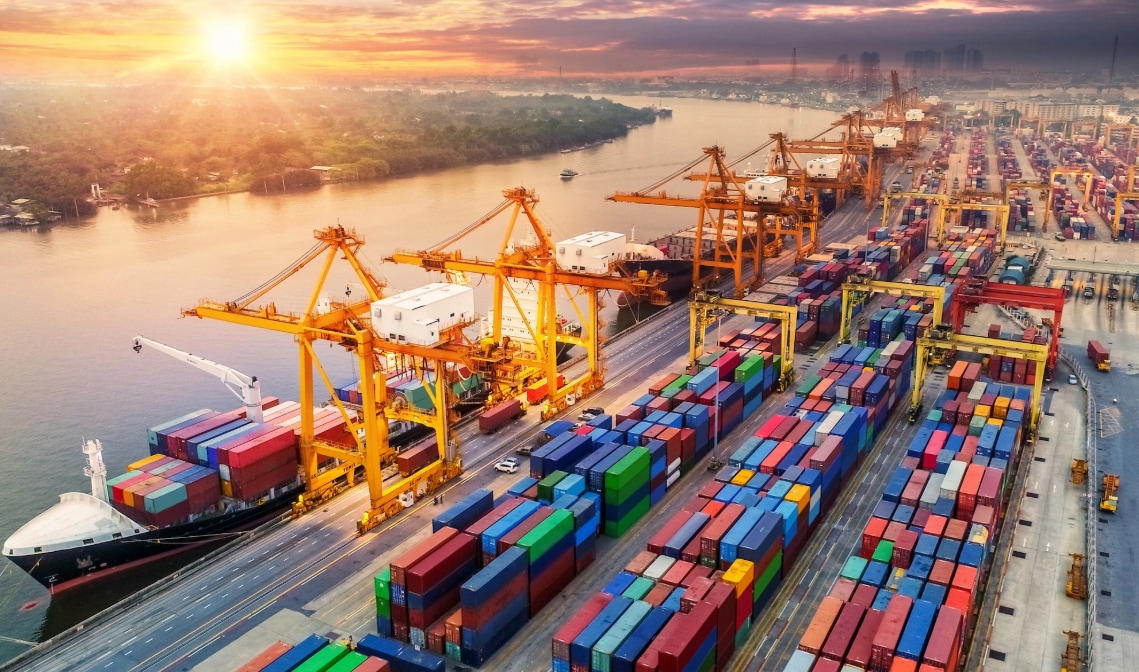Climate crisis is making days longer, and other nature and climate stories you need to read this week

The change is on the scale of milliseconds, but this is still enough to be consequential.
Image: REUTERS/Russell Boyce
- This weekly round-up contains the key nature and climate news from the past week.
- Top nature and climate news: How the climate crisis is making your days longer; Predictions for the 2024 hurricane season; Nations negotiate deep sea mining code.
1. The climate crisis is making your days longer
By 2100, the climate crisis could lengthen our days by 2.62 milliseconds, according to a study.
This is being caused by the melting of the Greenland and Antarctic ice sheets, which means that water is being redistributed from high latitudes into our oceans. Ultimately, more water is ending up in the seas nearer the equator.
This slows the rotation of the planet and lengthens our days, albeit on the scale of milliseconds.
Despite the change seeming minute, it has the potential to seriously disrupt modern life. Lots of our technologies rely on precise timekeeping, for example internet traffic, financial transactions and GPS navigation, to name a few.
“We can see our impact as humans on the whole Earth system, not just locally, like the rise in temperature, but really fundamentally, altering how it moves in space and rotates,” said Prof Benedikt Soja of ETH Zurich, as reported by The Guardian.
The study warned that if we continue to warm our seas and cause ice sheets to melt, the days will get longer at a more rapid pace.
How is the World Economic Forum fighting the climate crisis?
2. Warning over hurricane season
This year’s North Atlantic hurricane season could be particularly active, National Oceanic and Atmospheric Administration (NOAA) forecasts suggest.
While the average annual number of named storms is 14, NOAA data shows there could be between 17 to 25 storms this year.
Already this year, Hurricane Beryl has torn through the Caribbean, Texas and Louisiana, causing loss of life and leaving millions without power infrastructure.
Rising sea surface temperatures are contributing to the increased power of these storms, the BBC reports.
3. News in brief: Other top nature and climate stories this week
As many as 27 nations are meeting this week to negotiate a deep sea mining code, organized by the United Nations' International Seabed Authority.
Conflict in the Democratic Republic of Congo is fuelling forest loss, as charcoal production has been ramped up to sustain many of the region's communities' incomes, Reuters reports.
Decades ahead of schedule, the recovery of Pacific bluefin tuna is considered a major milestone in ocean restoration, according to the NOAA. Years of overfishing made this species endangered, but cooperation between international organizations has helped to rectify this.
London must better prepare for severe floods and heatwaves, warns a new report. The London Climate Resilience Review makes 50 recommendations to guide London’s preparations for more frequent and intense climate impacts.
Every day, millions of gallons of sewage flow into the Pacific Ocean near the US-Mexican border. Calls for infrastructure upgrades to treat the sewage on both sides of the border are mounting.
The nations of the Western Balkans need to invest at least $37 billion in total over the next decade to protect people and property from the impact of climate change, the World Bank warns. This comes at a time when heatwaves and wildfires plague the region.
Wildfires recently scorched Eastern Oregon, as NASA Earth Observatory's interactive images show.
A new report from the World Economic Forum captures the achievements of the First Movers Coalition (FMC) in stimulating demand for low-carbon technologies since its launch in November 2021. By 2030, the FMC's commitments will represent an annual demand of around $16 billion for near-zero technologies – delivering an estimated 31 million tonnes of carbon dioxide-equivalent in annual emissions reductions, the Forum says.
4. More on the nature and climate crisis on Agenda
What is the bioeconomy and how can it drive sustainable development? Find out here.
Decarbonizing and building climate resilience in developing countries is critical to the success of global climate action. Here's why developed countries must step up climate finance flows to these nations.
By 2030, fully embracing nature-positive transitions across three key socio-economic systems could unlock $10.1 trillion in business opportunities. Explore the available strategies here.
Accept our marketing cookies to access this content.
These cookies are currently disabled in your browser.
More on Climate ActionSee all
Jose Ignacio Galindo and Nicolas Wertheimer
July 24, 2025
David Elliott
July 22, 2025
Stephanie Dunn and Firuze Alpaydin
July 22, 2025
Muhammad Hassan Dajana and James Balzer
July 22, 2025



